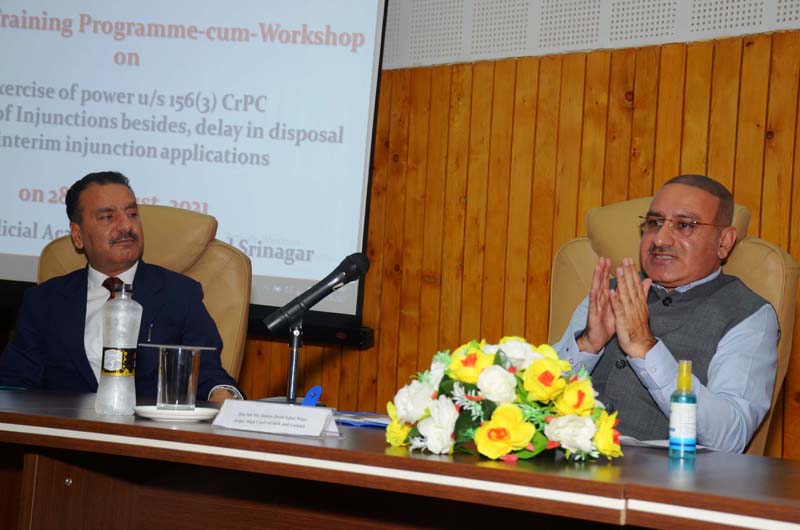Excelsior Correspondent
SRINAGAR, Aug 28: J&K Judicial Academy today organized one-day training programme-cum-workshop on “Exercise of power under Section 156(3) CrPC and grant of Injunctions besides, delay in disposal of interim injunction applications” for Judicial Officers (Munsiffs/JMIC) of Kashmir Division.
The programme was organized under the leadership of Justice Pankaj Mithal, Chief Justice, High Court of J&K and Ladakh (Patron-in-Chief J&K Judicial Academy) and under the guidance of Justice Dhiraj Singh Thakur (Chairman) and other Judges of Governing Committee, with the object to apprise the officers of the latest case law on the subject and to augment their learning capacity for leading them to effectively exercise such discretionary jurisdiction by adopting judicious approach.
The training programme was presided over by Justice Javed Iqbal Wani, Judge, High Court of Jammu and Kashmir & Ladakh (Member, J&K Judicial Academy). In his inaugural address, Justice Wani appraised the participants with the statutory framework and enlightened them with valuable and enriching inputs on the given topics. He further laid stress that power under 156(3) CrPC should be exercised strictly in accordance with law laid on the subject and that discretion should be exercised in a fair and transparent manner.
While dealing with the subject of grant of injunction, Justice Wani said that injunction being equitable remedy, it is in the discretion of the Court and such discretion must be exercised after satisfying the cardinal principles of law and every effort be made to dispose of application for injunction within 30 days thereby satisfying mandate of order 39 Rule 3A CPC.
The programme was mostly in interactive sessions which were moderated by Sanjay Parihar, Director, J&K Judicial Academy. The participating Judicial Officers discussed the relevant provisions of the Code of Criminal Procedure and Code of Civil Procedure concerned with the subject under discussion. The issues cropped up during discussion were resolved in the backdrop of the relevant provisions of law and judicial precedents from the Superior Courts.
Trending Now
E-Paper


